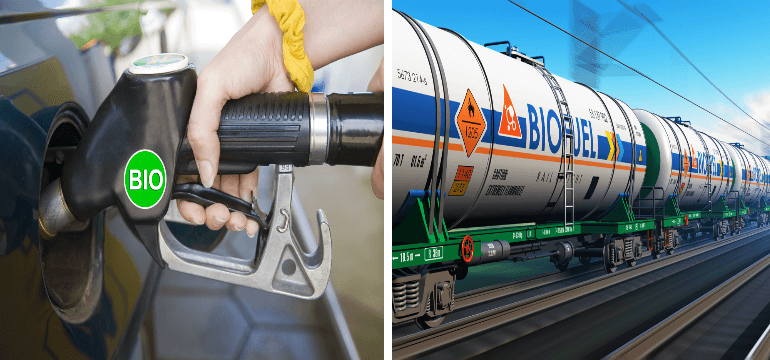Answer these simple questions and we will find you the BEST prices
Which type of solar quotes do you need?
It only takes 30 seconds
100% free with no obligation

Get up to 4 quotes from our selected suppliers by filling in only 1 form

Save money by comparing quotes and choosing the most competitive offer

Our service is 100% free and with no obligation
- GreenMatch
- Blog
- Biofuels, the new key player in renewable energy
Biofuels, The New Key Player in Renewable Energy
A Quick Definition of What Biofuels Are
A biofuel is an energy source that comes from living organisms or the waste they produce and is therefore from a biological process as opposed to a geological one such as fossil fuels. A biofuel can be directly derived from plants but also indirectly from commercial, domestic and agricultural waste.
You can also use the conversion of biomass to create biofuel in three different ways:
You will thus get a fuel that can be solid, liquid or at a gas state. It is up to you to decide at which state you prefer to use your biomass fuel, but it is generally done at a solid state as it is in use with biomass boiler.
What Are the Main Sources of Biofuel?
The major biofuels currently in production are:

Current Controversy Regarding the Production of Biofuels
Nowadays, a debate has arisen concerning the impacts of the production intensification of biofuels. It is clear that biofuel comes from bio sourced products and therefore does not use fossil fuels that take a long time to regenerate. The production of CO2 during its production is compensated by the photosynthesis of the plants while growing in the fields.
However, the turn towards biofuel production has led landowners to change radically their production that consequently has deregulated the surrounding ecosystems. Some scientists say it will take between 100 to 1,000 years to payback the carbon debt acquired due to change in land use. Even more frightening, the development of biofuel production has aggravated deforestation in particular in Brazil and in Indonesia (Borneo Island).
Are You Interested in Renewable Energy?
There are different ways one can contribute with the enviroment and reduce carbon emissions. One thing we are responsible for is our own homes. How well insulated is it? How much energy do I use? How much of this energy is green? Is there anything I could do different? Solar panels for homes, heat pumps and boilers are good options if you are willing to make your home more sustainable and less harmful to the environment.
If you wish to receive quotes on any of the above mentioned products, simply will in the contact form at the top of the page with your preferences and we will get back to you with an answer. Our team will make some further questions to connect you with the most suitable suppliers, who will provide you with free, no-obligation quotes on your chosen product.
Fill in the form in just 1 minute
We strive to connect our customers with the right product and supplier. Would you like to be part of GreenMatch?




